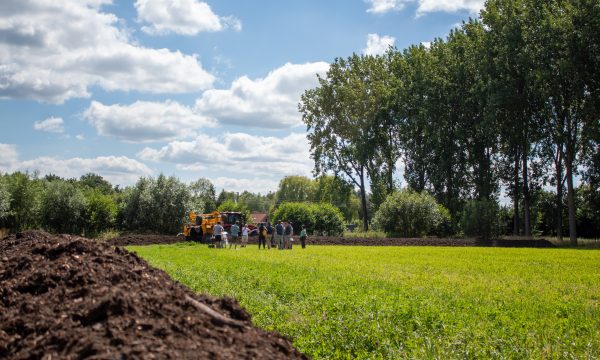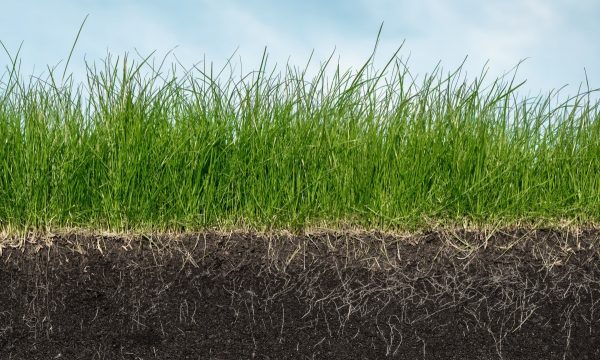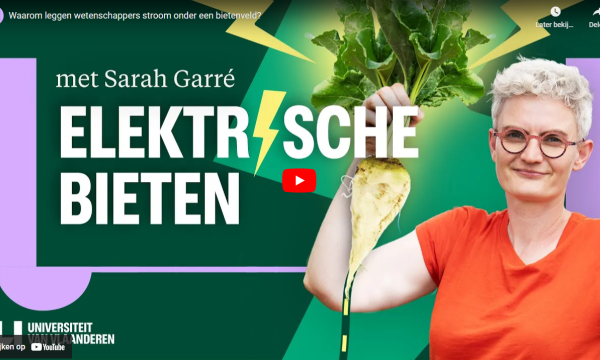Press release Soil Health Conference: Scientists and regenerative pioneers in dialogue
Relive the Soil Health Conference and Soil Health Day with these recordings, presentations and press releases [EN]:
- Click here for the Youtube playlist with the recordings of the different speakers
- Click here for the full presentation
- Click here to search for a specific presentation of a speaker
- Click here to search for a press text about the Conference
A folder with pictures of the conference can be found here.
Practical experiences still too little known and shared
Healthy soils can show good results in several areas: yield, nutritional value, carbon storage, biodiversity, water management,...
Agro-ecologist Jeroen Watté (Wervel vzw): "In some grasslands of regenerative pioneer Jos Van Reeth (BE) the organic matter content is now 17% and this almost without the use of external inputs. The biodiversity in the grassland has increased to such an extent that even the meat of grass-fed cattle scores among the 5-10% best in terms of nutrient density in an international survey. The results of pioneers are phenomenal, but they are still too little picked up by the industry and in academic circles they sometimes even run into doubts."Koen Willekens, ILVO soil expert and partner-founder of the Proefplatform Agro-Ecologie Hansbeke (PHAE) (2017): "Soil scientists use advanced methods to image (organic) soil characteristics and understand soil processes. Based on these results, ILVO engages in a dialogue with farmers on soil management and soil resilience. On PHAE's 50 ha, long-term experiments and measurements are taking place."
Collaboration between science and regenerative farmers increases pressure to change
Prof. emeritus Richard Teague (USA), prairie ecologist, sees sufficient scientific basis to take regenerative agriculture seriously. "We selected across the US the farmers with the highest carbon storage, and they appear to be practicing regenerative agriculture without exception. So scientists should work with such farmers."
Soil microbiologist Kris Nichols (USA) develops methodologies for farmers to improve soils: "A dogma in soil science is that plants could only take up simple ions to feed themselves, whereas soil life actually allows plants to take up very complex organically bound nutrients as well."Independent researcher in fertilization Anton Nigten (NL) states from the history of science, "There has been 'knowledge erosion.' That nutrients should not be fully mineralized was already known before WWI. A lot of knowledge has been lost through profit-driven research funding, among other things. In recent decades a lot has been rediscovered from ecology."
Peter Vanhoof bets on soil biology as a consultant: "The time of cheap fertilizer, cheap concentrate feed and cheap diesel is over. By working on slurry quality and soil life, the nitrogen-delivery capacity of soils can increase significantly. Farmers see it as a new revenue model."
How do we make the switch?
The conference concludes with a panel discussion, in which soil consultants and policymakers consider whether and how regenerative agriculture can become a starting point in advice and policy. The sense of urgency is there, but the compass toward healthy soils is not yet correctly calibrated. The challenge is a change in thinking in agriculture, among advisors, scientists and policy makers. And more dissemination of workable strategies.
Perscontact:
Greet Riebbels, communicatie ILVO, greet.riebbels@ilvo.vlaanderen.be, M. 0486 260014
Jeroen Watté, agro-ecoloog Wervel vzw (mob +32 484719541 - jeroen@wervel.be)
Edinburgstraat 26 - 1050 Elsene
Belgium
What is regeneratieve agriculture?
Regenerative agriculture uses agricultural practices aimed at restoring ecosystem functions. The starting point is soil health, including soil structure, carbon storage, water infiltration, water storage, biodiversity. The focus is not on reducing harmful impacts, but on increasing positive impacts: resilience for more stable food production and higher profitability. The practices create a context in which natural processes of cooperation can occur, between soil life and plants, between plants and animals, between those components themselves. Hence the conference title: harnessing biodiversity for better agronomy. Examples of practices include no-till, applying compost tea, sowing various green manures, keeping soil covered, using animals, phasing out chemical fertilizers and pesticides.
WERVEL is a local NGO working for a healthy food system, fair prices for farmers. Wervel puts the restorative power of agroecology on the map.


